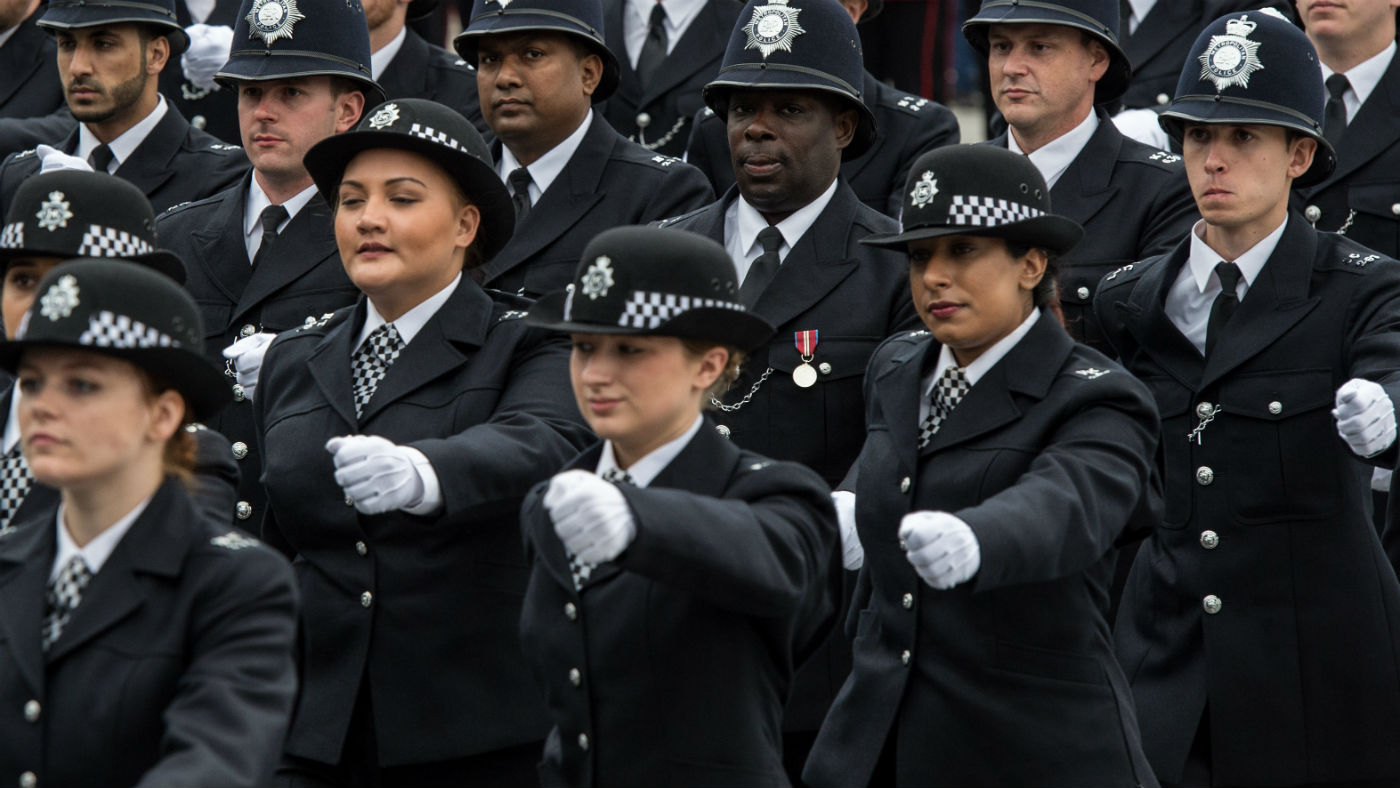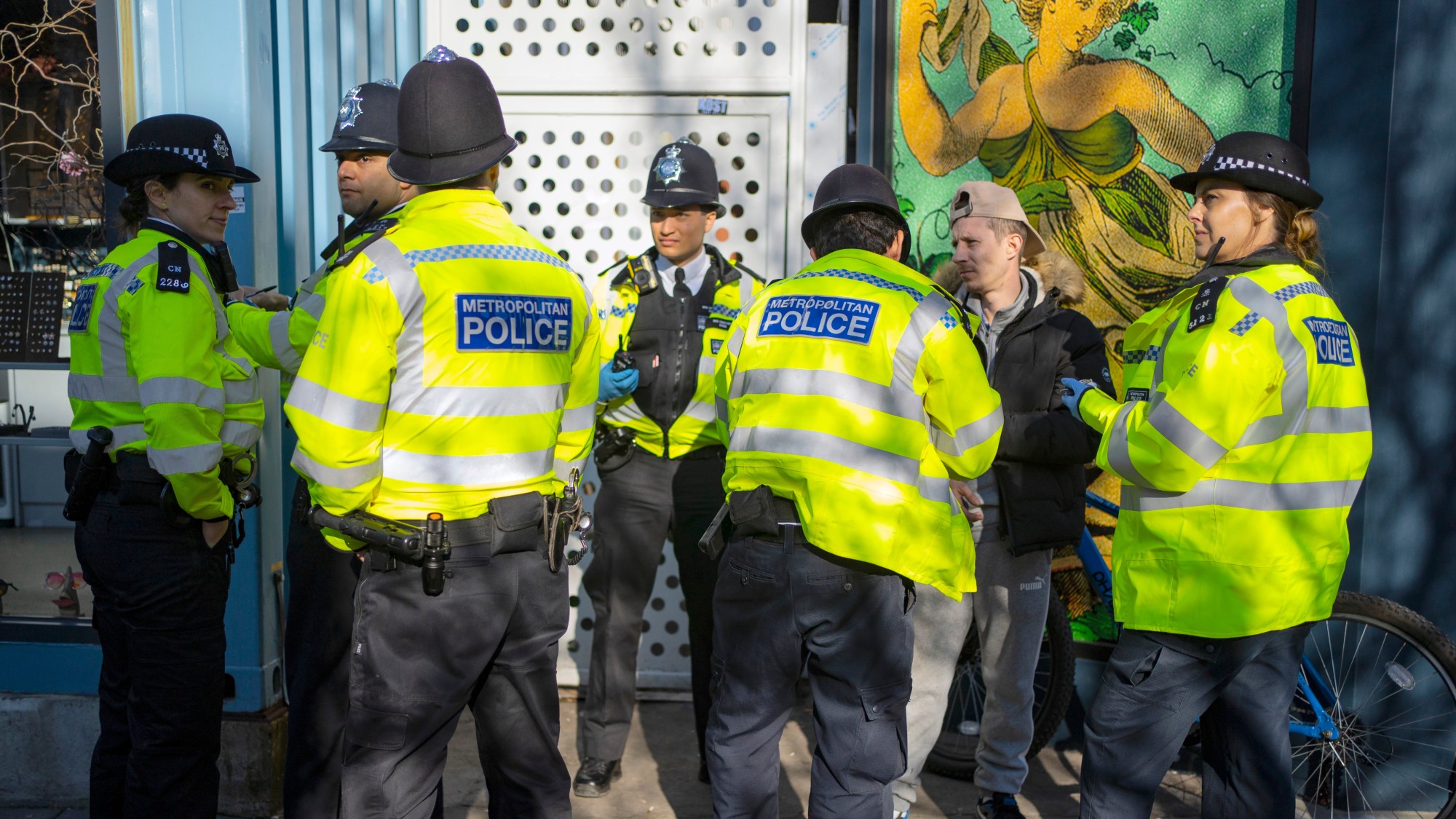When are the police allowed to stop and search?
Proposals to relax ‘reasonable grounds’ condition has met with mixed response

A free daily email with the biggest news stories of the day – and the best features from TheWeek.com
You are now subscribed
Your newsletter sign-up was successful
Police chiefs across England and Wales are reportedly discussing plans to broaden officers’ stop and search powers by scrapping the “reasonable grounds” condition.
Advisors to Home Secretary Sajid Javid have held talks with senior officers within the last two weeks to discuss the proposal, which comes amid a spike in knife crime in many of the UK’s major cities, reports The Guardian.
Adrian Hanstock, of the National Police Chiefs’ Council (NPCC), said there “are a lot of calls for officers to do more stop and search”. If an officer “does not have sufficient grounds or X-ray vision to see the [offender] is carrying a weapon, and they are concerned they may have something to cause harm, that should trigger a search”, he told the newspaper.
The Week
Escape your echo chamber. Get the facts behind the news, plus analysis from multiple perspectives.

Sign up for The Week's Free Newsletters
From our morning news briefing to a weekly Good News Newsletter, get the best of The Week delivered directly to your inbox.
From our morning news briefing to a weekly Good News Newsletter, get the best of The Week delivered directly to your inbox.
But commentators say such a move risks fuelling accusations of police discrimination against minority ethnic communities, amid increased debate about civil liberties and how to tackle violent crime.
When can police stop and search suspects?
Currently, UK law stipulates that police officers are allowed to “stop and question” any member of the public, but may only physically search them if they have “reasonable grounds” to suspect they are carrying illegal drugs, a weapon, stolen property or “something which could be used to commit a crime, such as a crowbar”, says government portal Gov.UK.
Reasonable grounds means that an officer must have “an objective basis for the suspicion based on facts, behaviour, information and/or intelligence which are relevant to the likelihood of finding an article of a certain kind”, according to Northamptonshire Police guidelines.
A free daily email with the biggest news stories of the day – and the best features from TheWeek.com
The official guidance adds that reasonable suspicion “can never be supported on the basis of personal factors”, such as race, age or nationality.
However, under Section 60 of the Criminal Justice and Public Order Act 1994, a search can be undertaken without reasonable grounds in certain circumstances and if it has been approved by a senior police officer.
Usually, this means police being given power to search anyone in a certain area: for example, when there is evidence that serious violence has taken place or may take place. However, permission for mass searches is only granted for a limited time.
If you are stopped and searched, the police officer is obliged to inform you of their name and police station, what they expect to find, the reason they want to undertake a search and why they are legally allowed to conduct a search.
The police officer can ask you to take off your coat, jacket and gloves, but if you are asked to remove further clothing then the search must be carried out by an officer of the same sex as you.
Crucially, “being searched doesn’t mean you’re being arrested”, says Gov.UK.
What are the arguments for scrapping reasonable grounds?
Concerns over rising knife crime have triggered debate about reforming stop and search laws.
“First and foremost, I am ensuring police have all the powers they need,” Javid told The Sun on Sunday. “Carrying any type of knife is totally unacceptable.”
But critics insist his proposed solution is equally unacceptable, in light of data that shows black people are “around nine times” more likely to be targeted for searches than white people, by a police force that remains disproportionately white, according to The Guardian.
The London Evening Standard notes that the vast majority of people stopped turn out to be innocent. During her time as home secretary, Theresa May voiced concerns that the targeting of black people had eroded the trust of ethnic minorities in the police, the newspaper adds.
However, the NPCC’s Hanstock insists the new laws could fit better with a fresh approach that treats violent crime as a public health issue, rather than a matter solely for the criminal justice system.
“The outcome of a positive search does not have to be a criminal justice solution. What’s the alternative? It could be a health or welfare approach,” Hanstock said.
-
 What are the best investments for beginners?
What are the best investments for beginners?The Explainer Stocks and ETFs and bonds, oh my
-
 What to know before filing your own taxes for the first time
What to know before filing your own taxes for the first timethe explainer Tackle this financial milestone with confidence
-
 The biggest box office flops of the 21st century
The biggest box office flops of the 21st centuryin depth Unnecessary remakes and turgid, expensive CGI-fests highlight this list of these most notorious box-office losers
-
 Why have homicide rates reportedly plummeted in the last year?
Why have homicide rates reportedly plummeted in the last year?Today’s Big Question There could be more to the story than politics
-
 How the ‘British FBI’ will work
How the ‘British FBI’ will workThe Explainer New National Police Service to focus on fighting terrorism, fraud and organised crime, freeing up local forces to tackle everyday offences
-
 ‘Stakeknife’: MI5’s man inside the IRA
‘Stakeknife’: MI5’s man inside the IRAThe Explainer Freddie Scappaticci, implicated in 14 murders and 15 abductions during the Troubles, ‘probably cost more lives than he saved’, investigation claims
-
 3 officers killed in Pennsylvania shooting
3 officers killed in Pennsylvania shootingSpeed Read Police did not share the identities of the officers or the slain suspect, nor the motive or the focus of the still-active investigation
-
 Dash: the UK's 'flawed' domestic violence tool
Dash: the UK's 'flawed' domestic violence toolThe Explainer Risk-assessment checklist relied on by police and social services deemed unfit for frontline use
-
 The ethics behind facial recognition vans and policing
The ethics behind facial recognition vans and policingThe Explainer The government is rolling out more live facial recognition technology across England
-
 The Met police's stop and search overhaul
The Met police's stop and search overhaulThe Explainer More than 8,500 Londoners have helped put together a new charter for the controversial practice
-
 Axel Rudakubana: how much did the authorities know about Southport killer?
Axel Rudakubana: how much did the authorities know about Southport killer?Today's Big Question Nigel Farage accuses PM of a cover-up as release of new details raises 'very serious questions for the state about how it failed to intervene before tragedy struck'